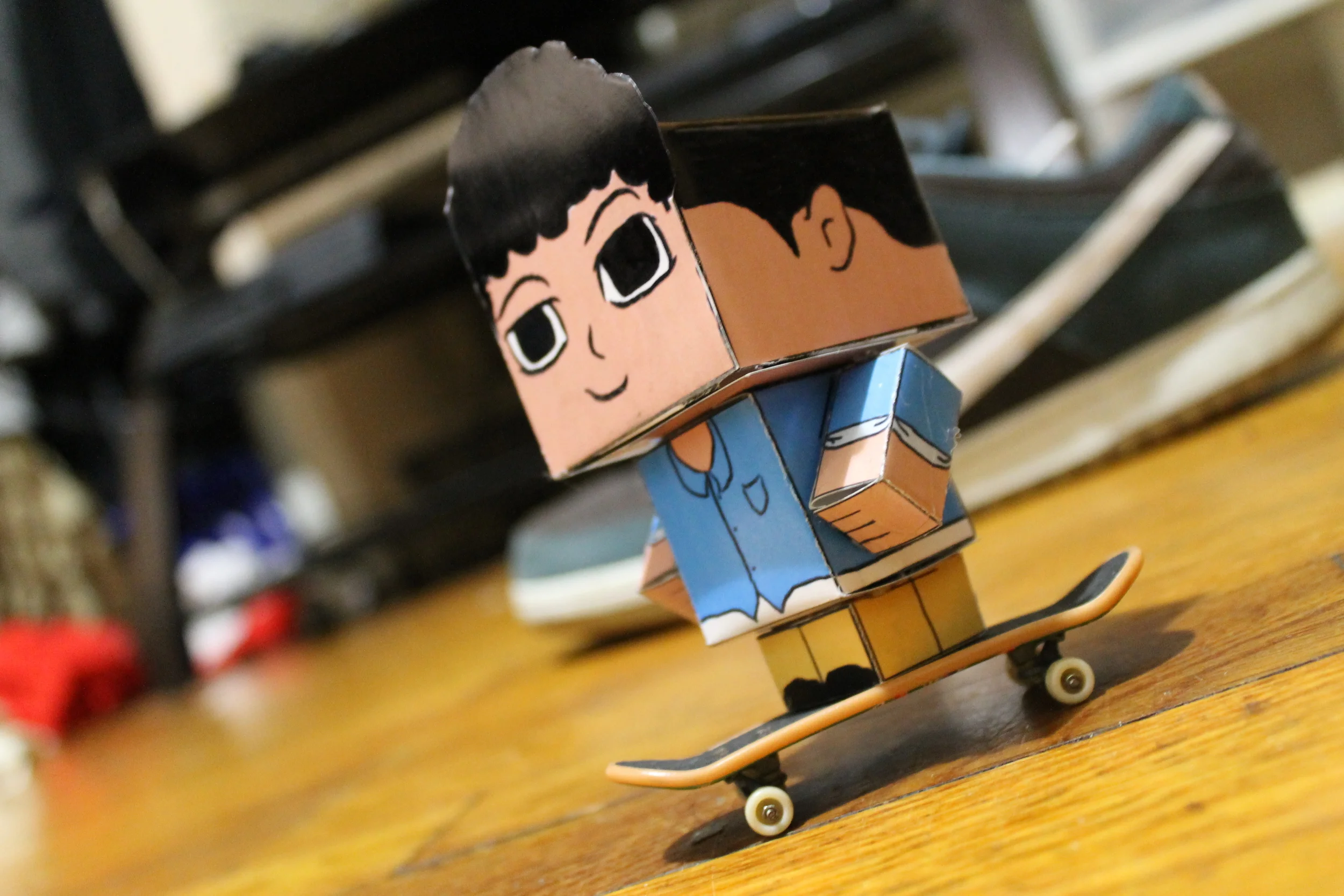








This project was a continuation of the Mini-Me project. I enjoyed Mini-Me so much, I wanted others to have a similar experience of exploring the world at a different scale.

Each of my students created a small paper figure, a self-portrait. I then asked my students to create photographs based on a series of prompts I provided.

My students created some beautiful work! The little 3 inch figures were the perfect opportunity to explore and have fun with scale.

Through imagination we can experience the familiar in a fresh way. The little figures offered a new perspective to see the world.

As digital artists we seldom experience our work as real tangible objects we can feel and handle.

The purpose of the assignment was not only to explore different scales but also to teach the process of UV unwrapping and texturing. UV unwrapping involves creating a 2D map for textures to wrap around a 3D object.

We returned to the digital by viewing our figures in the Unity game engine with the Oculus Rift. The 19 paper figures placed on the table created a map that would allow my students to navigate the larger environment.

Through the Oculus Rift the 3 inch tall figures we had became so familiar with as actual tangible objects were experienced at a towering monumental scale. Margaret Livingstone, professor of Neurobiology at Harvard explains that changing scale "forces us to process what we were looking at with different parts of our brains than we normally use for seeing places".